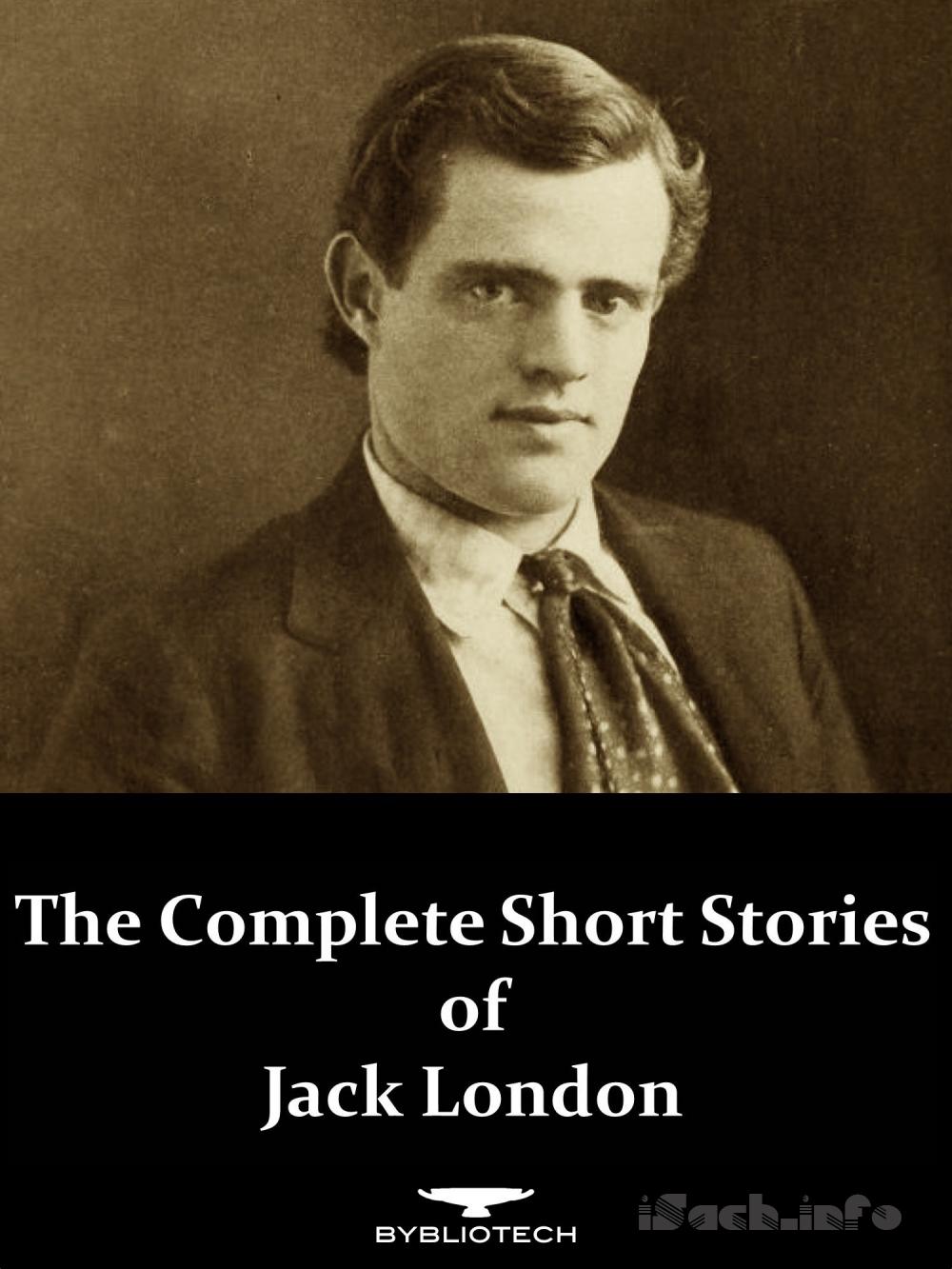The Test: A Clondyke Wooing
T
HE air throbbed with the confused uproar of many sounds—swinging, waltz-time music; the clicking of chips; the sharp clattering of the roulette ball; the clear-cut decisions of the game keepers; noisy gaiety and laughter; and above, under, all about, the deep hum of conversation. Candles and kerosene lamps looked down upon the scene. The floor was alive with the flying feet of the be-moccasined dancers, while at the tables clustered the gamblers, intent on the golden chase. In groups, the men of the creeks and camps and trails, talked of past deeds and planned new enterprises. Unkempt; clad in mackinaw, furs and muclucs; with the worn, tired faces of those who are brothers of toil and hardship; they unbent their stiffened tongues and talked and lived the old times over once again, ere, with the dogs, they faced the trail on the morrow. The long bar was crowded by those who sought to ease their thirst, or found temporary oblivion from the heavy labor of their meager lives.The music struck up a lively "two-step"; but it was too cultivated for the dancers, only one couple taking the floor. A moment they became the cynosure of all eyes; conversation lulled, then rose again to a drowsy hum—they had been recognized—Lucille, and Jack Harrington, the Mastadon King. A fine pair they were to look at—Lucille, as pretty and charming a woman as ever graced a mining camp; Jack Harrington, strong and handsome, the owner of the richest claim on Mastadon. She—well she was Lucille, and for her past, such things are forgiven and forgotten in Dawson. And he was, as everybody said, a jolly good fellow, who had greater luck and could play a violin better than any man in the country.
They talked as they danced—talked of many things; of royalties and Gold Commissioners, the price of dogs and grub, of mines and miners; for they did not know each other and this was all they had in common. But given two healthy beings with time on their hands for mutual intercourse, you can safely trust to Chance for the finding of something in common—nay, something uncommonly in common. Ere the music ceased, the germ was sown.
"So you play the violin," she said. "O, teach me how! Above all, I love it. Won't you teach me?"
And this is how it began.
Three weeks later:
Past midnight, the dancing and gambling at its height, as Lucille and Jack enter, finishing a conversation begun the cold northern lights.
"And you are sure?" he asks.
"O Jack, I do love you for yourself, and I don't care whether you're broke or can count your ounces by the thousand. I know my feelings."
It slips trippingly from your tongue and feelings are easily mistaken. Can you prove it?"
"Prove it? How can I? I wish it were so, but it can't be done."
"O yes it can."
"Can?"
"Come."
Then did a comet flash athwart the Dawson sky. Limits were removed and the tables crowded by the miners, intent on seeing the high play. The last turn at the faro table, and he plays the queen to win and "coppers" the deuce for an even thousand apiece, with another thousand on the high card. The deuce follows the queen and the three bets are lost. The onlookers are breathless with admiration. In fifteen minutes the whole town knows that "Lucky" Jack Harrington has broken loose, and comes to see. The test has begun.
Ever, as he ventures the markers he repeats his question, and as often she reiterates her reply. At the end of an hour he is fifteen thousand to the bad; still the play is not fast enough for him. He sends for the chairman of the committee, appointed by the miners to aid several score of unfortunates, who had lost their all in the "great fire." Laconic the conversation:
"There's ten thousand behind the bar for you, on one consideration."
"And that—"
"Is that you weigh it out and take it away at once."
"Done."
Father B——is summoned and the scene repeated; this time twenty-five thousand for the hospital. And the town voices one conclusion: either "Lucky" Jack Harrington is drunk or has gone clean daft.
"I've sold my mine and this is the last of it," he says to Lucille as he scatters a final handful of dust under the feet of the dancers. "What do you think of me now?"
"Jack! Jack! the test is hard! I had thought we could do so much, that we could have gone away and forgotten all this—I hate it so! But you should know that I cannot change. I would do anything, endure anything for your sake. Thank God! you've done your worst and I'm not altered."
"Would you cleave unto me and follow me to the ends of the earth, in misery, toil and hardship?"
"Why jangle words? Can a woman do more? I have told you: you have tried me. Is there aught under the sun a woman won't do when she truly loves?"
"But would you?"
"If you will have it so, yes. Like the squaw, it is my duty to follow my lord and master—aye, and my pleasure."
Old Sol, attended by twin sun dogs, has just cleared the southern horizon at meridian, and pauses for a peep at the Northern Eldorado. Before he can slip behind the mountain over which he rose, he catches a glimpse of a scene, which all Dawson has turned out to behold. Two heavily laden sleds and an Indian dog driver, wait where the throng is densest, before the Opera House. A passage is forced through the onlookers and he is joined by Jack and Lucille.
Cold, the morning; dreary, the scene; crude, the environment: but withal, magnificent, the picture. Filled with scintillating frost particles, the air is a sparkling, silvery sheen, a fairy gossamer. The mighty Yukon, the towering peaks, the far-reaching forest; monotonously white and sphinx-like in their brooding calm, sleep on the bosom of the awful Artic silence. In garments of leather and fur, toil-worn and hardy, their eyes slumbering with latent action and power, the gold-seekers group like heroes of the Elder World. And there, in their midst, a veritable King of the Northland—"Lucky" Jack Harrington. From his wolverine cap to his Innuit muclucs, he stood a MAN amongst MEN. And she, in buckskin and furs and beaded moccasins, with her rosy cheeks and laughing eyes, was truly a dainty, Artic princess.
The air is filled with goodbyes and good wishes. The whips snap spitefully; the wolf-dogs lunge in the traces with the quick, impatient whine of their wild progenitors; and the steel-shod sleds crunch into the river trail. Some one in the crowd sings
"And Ruth clave unto her—"
And Dawson wondered over "Lucky" Jack Harrington's latest freak, and would be wondering yet, had it not forgot it all that night in a wild stampede to Swede Creek.
For a month, now, entirely isolated on the head waters of the Clondyke, had they lived in a rough cabin of Jack's building. Meager had been their fare—bacon, beans and flour, with an occasional moose steak. Meager had been their lives, shorn of all but the barest necessaries. And for a woman, bright, accomplished, and who has known so much better, to settle down to the coarse, dreary round of housekeeping in such a camp, windowless and cheerless, with its tin plates and pine bough bed and guttering slush-lamp, it was indeed hard. Lucille stood it, however, because she was with the man of her choosing; though little did she see of him, for he was in the forest or over the mountains from morning till night.
But she was a woman in whom the emotions were important factors of her existence, and when they mounted the throne of her reason they ruled with a rod of steel. Finely strung, sensitive, delicate, with the sensuous soul of the artist, loving the rhythmic pulse of harmony and responding to its loftiest flights; small wonder she took pleasure in the violin during his constant absences. And small wonder in the long evenings when he could be induced to play, that she sat as one entranced. Nor was it the instinctive delight of the untutored animal that bade her best. She was more like a thirsty soul, wandered afar in the desert and harking back to the founts and springs of its childhood.
But of her love for the music, Jack thought strange things, and a certain, unconscious jealousy, grained and distorted his conclusions. So, on this night of nights, he played as one possessed. He excelled himself, venturing difficult flights, half in bitterness, half in pleasure born of the consciousness that he was soon to know. Clever at improvisation, he at last essayed one, that soared to heights and sank to depths, hitherto unattainable. And in the voluptuous harmony he enticed and lost, not only her, but himself.
The tremulous, long-drawn strains, saddened to a minor of gentle runs and soft, melancholy cords. For a space, the air thrilled with the pathos of the theme; then the finale begun. The adagio changed to allegretto, to allegro, from allegro to velocissimo. Shaking, shuddering, shivering, quivering, the violin shrieked its passion, bursting into one final vortex of emotions.
A string broke: a jangling discord died away: they looked at each other across the beloved instrument. Without, a wolf-dog howled mournfully: the slush-lamp guttered gloomily. All else was silent. Into her eyes he gazed as though he would lay bare her soul.
"For myself, or the music?" he asked. And with one fierce stroke the violin crashed into fragments.
An early April morning—there is a low hum of life, a subdued murmur of running waters, a vague feeling of preparation, in the air. Spring, that bursts into an instant miracle of bloom and life and action, has crept in insidiously and unawares. Yesterday, the ghastly silence of winter weighed upon us; to-day we have a strange sensation of unrest, an unconscious expectancy; and to-morrow there is a crashing and rending of fetters, and the full-grown Spring breaks upon us like a marvelous vision.
All Dawson awoke and drank the exhilarating tonic of the air; felt the premonition of things to come; and wandered up and down the main street through the very joy of living. And not among the least, was its interest in the dog-teams, ready to commence their long journey to "salt water," to the Outside. Again the hearty grip and good luck blessing; again the whips snapped, the dogs howled, and the sleds churned into the river trail; and for the last time, Jack and Lucille turned their backs on the Golden City.
As usual, Dawson was excited, and several of her most respected citizens so far forgot themselves as to baptize the departing travelers with rice—rice, worth a dollar a pound and only purchasable in small quantities.
A few comments were made.
"'Lucky' Jack Harrington stands pat," quoth one of the gambling fraternity.
"Why shouldn't he?" said another. "He's a good hand at the game. Who'd have thought he owned a mile of Dominion all the time, and it as rich as Eldorado?"
"They say he bought it up for a song when it wasn't worth the recording fee."
"I say, boys, he may have an Eldorado in Dominion, but we know he's got a Bonanza in Lucille."
"Bet you the ice breaks before he makes Chilkoot!"
"Even it don't!"
"Who'll give me odds?"
"Two to one it does!"
And herewith, all Dawson fell to gambling on the race "Lucky" Jack Harrington was running with the Spring.



 ePub
ePub A4
A4